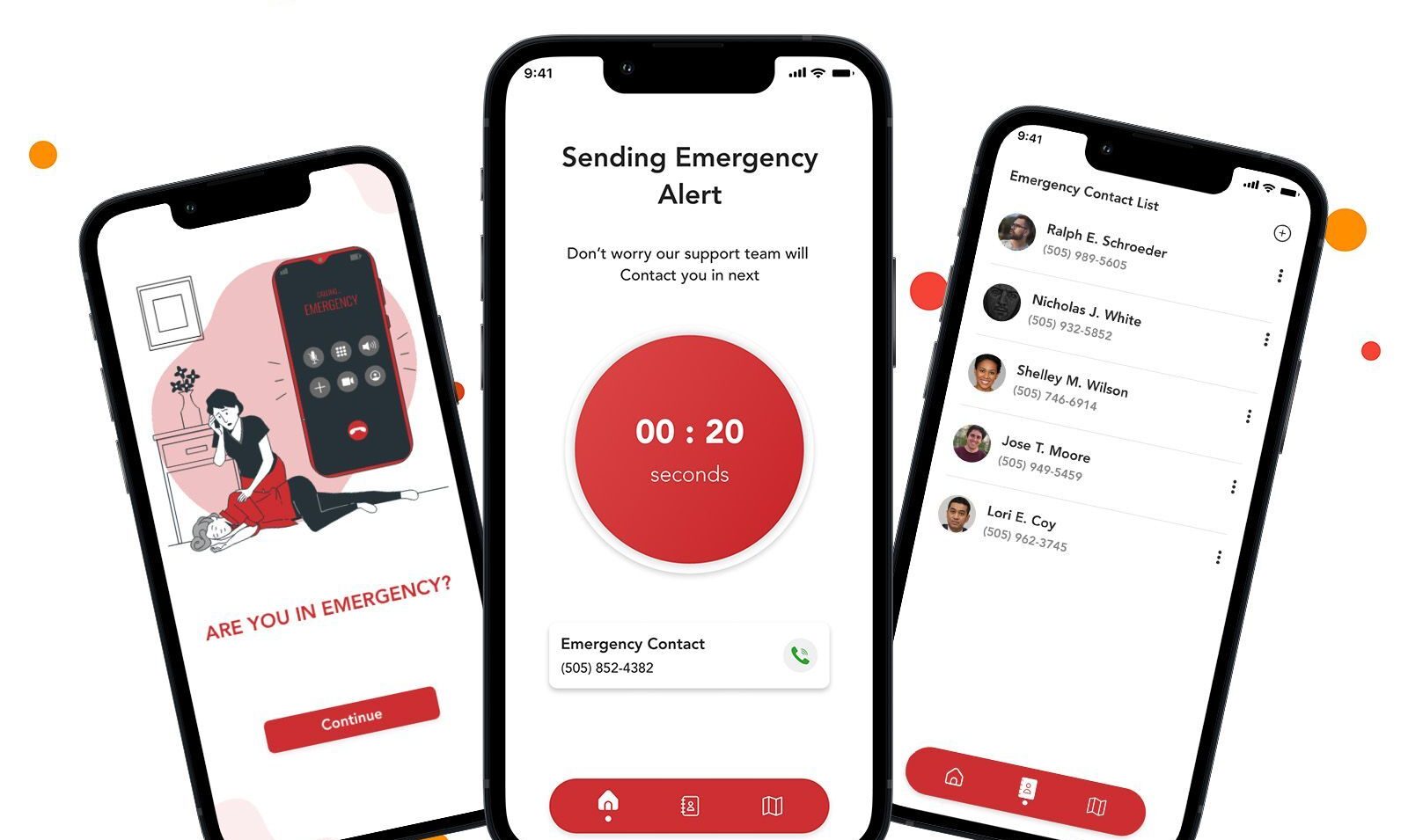By eliminating the fear of being identified as whistleblowers, crime reporting apps empower citizens to play an active role in safeguarding their communities through collaboration with the police.
By Michael Akuchie
Picture this: You live in South Africa, and a series of gunshots wakes you a few minutes past midnight. Judging by their proximity, your neighbour is most likely the victim of an armed robbery. Naturally, you should call the police and request their immediate presence, but that is not your first thought. Instead, you are gripped by the instinct for self-preservation and retreat into the closet, hoping you won’t be found.
When morning comes, your neighbours are left to count their losses and soon become part of a growing demographic of robbery victims whose cases are unlikely to be investigated, because they were never reported.
Between January and March 2025, South Africa recorded 5,516 robberies at residential locations, according to statistics from the South African Police Service. Although theft remains one of the country’s most prevalent and persistent crimes, the public’s reluctance to report such incidents is equally troubling. According to the Governance, Public Safety and Justice Survey compiled by Statistics South Africa, fewer than 50% of burglary incidents are reported. This suggests that a significant number of victims are unlikely to receive justice, simply because the police were never informed.
Beyond South Africa, many crimes often go unreported across several African countries. One major reason is that people fear that by informing the police about a robbery or assault, they risk being identified by the suspects and targeted for retaliation.
Another factor behind the low number of reported crimes is the deep-seated resentment towards the police across the continent. In countries like Nigeria and Kenya, where social media is awash with reports of police extortion and brutality, it is hardly surprising that citizens have become increasingly wary of law enforcement. Beyond the lack of trust, many also believe that the police lack the resources necessary to investigate robbery cases and possibly recover stolen items.

In recent years, crime reporting apps have been launched in several African countries, including Nigeria, South Africa, and Kenya, as part of efforts to challenge the long-standing culture of silence following incidents of murder or robbery. With portable devices such as smartphones or laptops, users can now leave anonymous tips about crimes, thereby drawing the attention of the police.
Some notable apps designed to make crime reporting more accessible include the My SAPS app (South Africa), the NPF Rescue Me app (Nigeria), and the NCRC Kenya app (Kenya).
These apps allow users to upload audio and visual evidence of a crime, providing law enforcement with substantial information to improve the chances of apprehending those responsible. Furthermore, submitting audio files, photographs, and video recordings enhances the credibility of anonymous tips, making them more actionable. By eliminating the fear of being identified as whistleblowers, these platforms empower citizens to play an active role in safeguarding their communities through collaboration with the police.
It also empowers women, a historically disadvantaged group in Africa, to report cases of domestic abuse or gender-based violence. Whether it involves an abusive husband or a case of female genital mutilation, women can now assist the police in combating such crimes by reporting them. Through these crime-reporting apps, technology helps bridge the trust deficit that exists between the police and civilians. With the availability of credible evidence submitted via anonymous tips, law enforcement officers now have an opportunity to rewrite the narrative of incompetence.
Although crime-reporting apps are steadily gaining popularity among African citizens, certain infrastructural challenges threaten the growth of this innovation. The ability to notify law enforcement of criminal activity often depends on whether an individual owns a smartphone and has access to reliable internet connectivity. However, due to inflation and other economic difficulties, budget smartphones are becoming increasingly scarce. As a result, people must allocate more funds to afford these devices, and the same applies to laptops.

The cost of pre-owned laptops imported from markets in the UK and the US has also soared in recent years, making them nearly unattainable for low-income Africans. Additionally, poor internet connectivity remains a major challenge in many parts of the continent. If an app fails to load after launching, reporting a crime becomes nearly impossible. Although countries such as South Africa, Kenya, and Nigeria now have 5G coverage in several areas, the routers and data plans required to access these services are still prohibitively expensive for many.
These issues further widen the already significant digital divide across Africa. For crime-reporting apps to truly gain traction on the continent, African leaders should prioritise the expansion of 5G coverage and invest in the production of locally assembled smartphones. The latter would offer consumers a wider range of affordable options, making it possible to own a phone without having to save for months.
Another obstacle that could prevent many people from using mobile apps to report crimes is the low rate of digital literacy, particularly in rural areas. While smartphones are increasingly popular, many residents, especially older individuals, lack the technical know-how to operate them effectively.
Beyond the inability to use smartphones, many people in remote communities simply do not understand the importance of crime-reporting apps. To address this, the police should consider organising town hall meetings to educate citizens on how mobile apps can aid in combating crime. Clearly explaining the benefits of these tools, and demonstrating how they work, would go a long way in fostering trust in law enforcement.
Many African police forces are known to be understaffed and poorly funded, as is evident in countries like Nigeria and South Africa. With limited budgetary allocations, it is almost impossible for law enforcement to respond to every anonymous tip received through these apps. Meanwhile, criminals continue to grow more sophisticated, using modern tools and techniques to carry out their crimes. To deter such activity, African leaders must allocate greater funding to their police forces, enabling them to maintain essential infrastructure—including technology-based tools such as scanners and crime-reporting apps.

Mobile apps have the potential to enhance law enforcement agencies’ capacity to combat crime in Africa. By using user-friendly platforms that allow for the upload of audio and visual evidence, citizens can report criminal activity, thereby helping to protect their communities and strengthen collaboration with the police.
Furthermore, these apps should include features that allow users to track the progress of each reported case from start to finish. This would not only build trust in the police but also make the policing process feel more transparent than ever before.
Michael Akuchie is a tech journalist with five years of experience covering cybersecurity, AI, automotive trends, and startups. He reads human-angle stories in his spare time. He’s on X (fka Twitter) as @Michael_Akuchie & michael_akuchie on Instagram.




